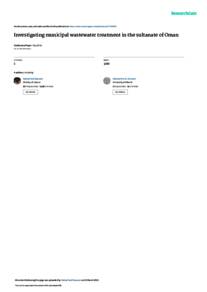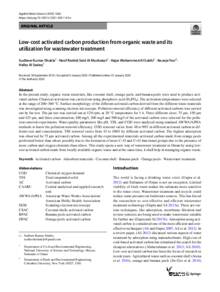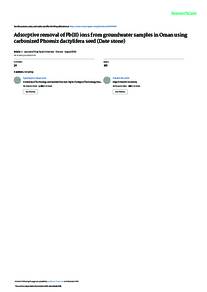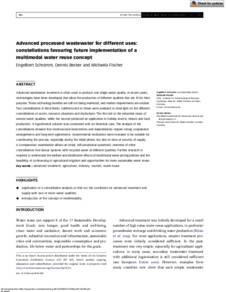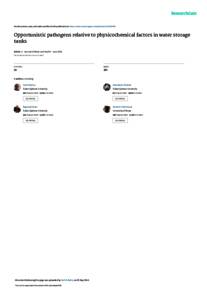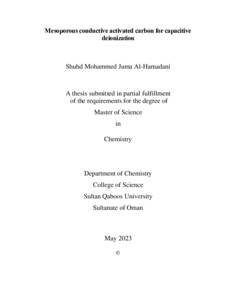Document
Investigating municipal wastewater treatment in the Sultanate of Oman.
Identifier
DOI: 10.2495/WRM110641
Contributors
Publisher
WITPress.
Gregorian
2011-05
Language
English
Subject
English abstract
Municipal wastewater is the water generated from domestic, commercial, and public sources. This water can be viewed as the only potential water source that will increase as population grows. The importance of wastewater as a potential source of water is apparent in countries that suffer from shortage of water. However, it must be treated properly before reuse and/or disposal due to the need for controlling many parameters such as biochemical oxygen demand (BOD), chemical oxygen demand (COD), solids, heavy metals, anions and microbial content. The aim of this study is to investigate municipal wastewater treatment in the Sultanate of Oman by analyzing wastewater samples collected from different treatment plants in three regions of the country (Muscat, Salalah, and Sohar). Comprehensive analyses including physical, chemical and biological characterization of raw wastewater and final effluents were conducted by collecting samples from major treatment units within the studied treatment plants. Consequently, comprehensive database was established for the raw municipal wastewater quality in the three regions and the performance of the treatment plants over 12 months. The levels of constituents in the final effluents from the treatment plants in the three regions were compared with Omani standards to evaluate their suitability for the current (e.g. landscape irrigation and groundwater recharge) and/or alternative (e.g. cooling and processing water) applications. Better aeration, oxidation, adsorption and disinfection technologies were recommended to improve the quality some of studied treatment plants final effluents.
Member of
ISSN
1743-3541
Resource URL
Category
Journal articles

